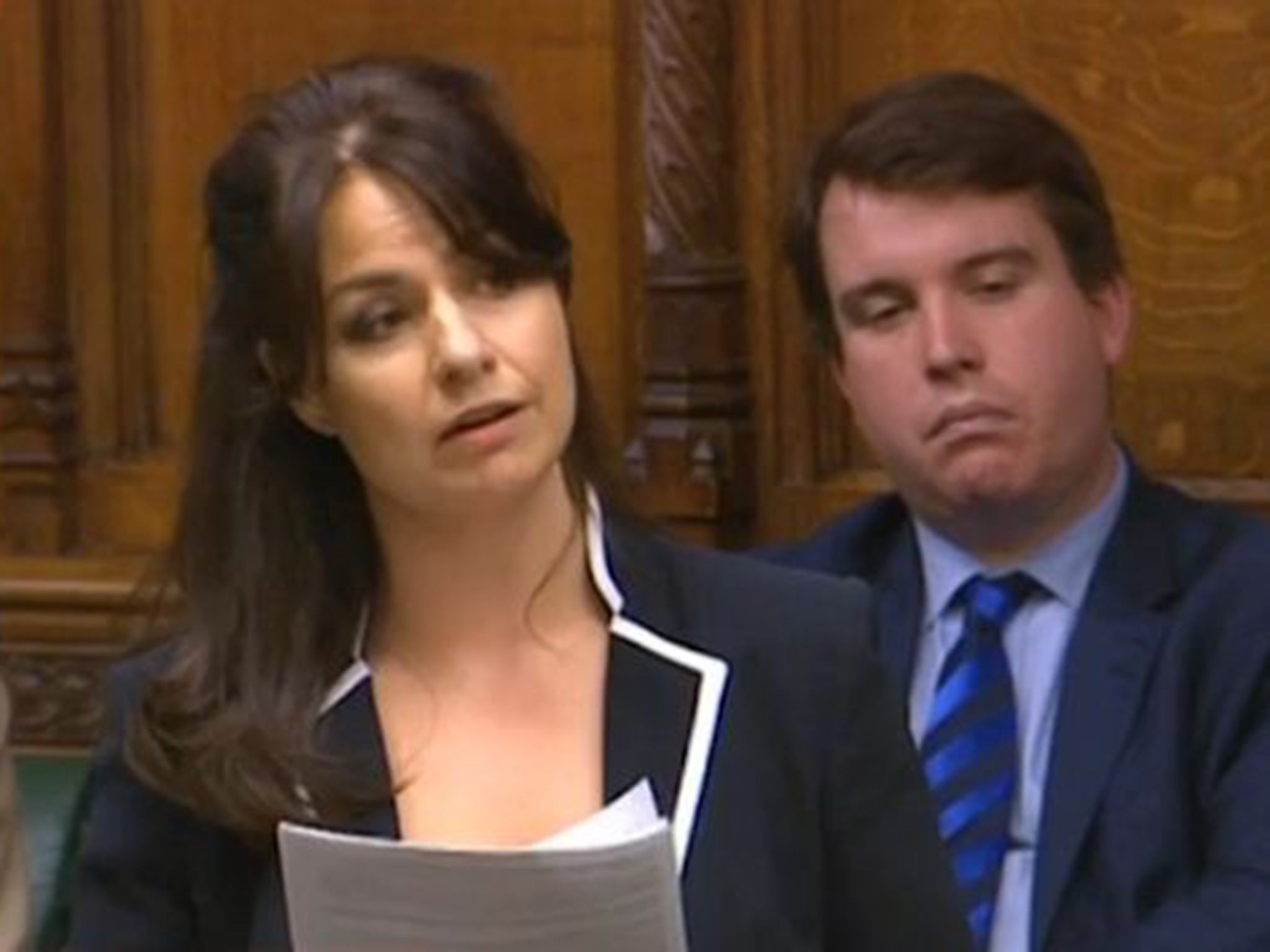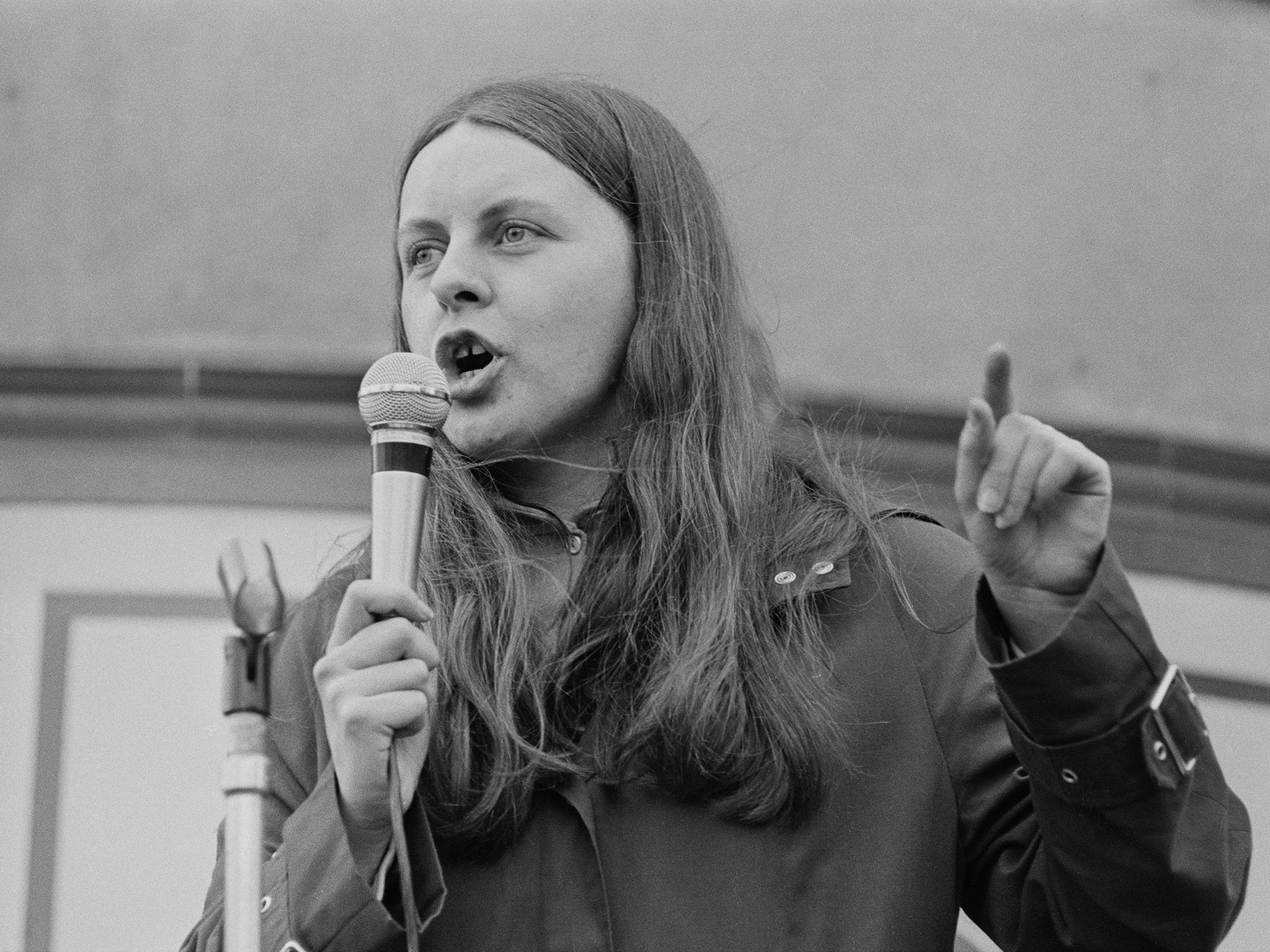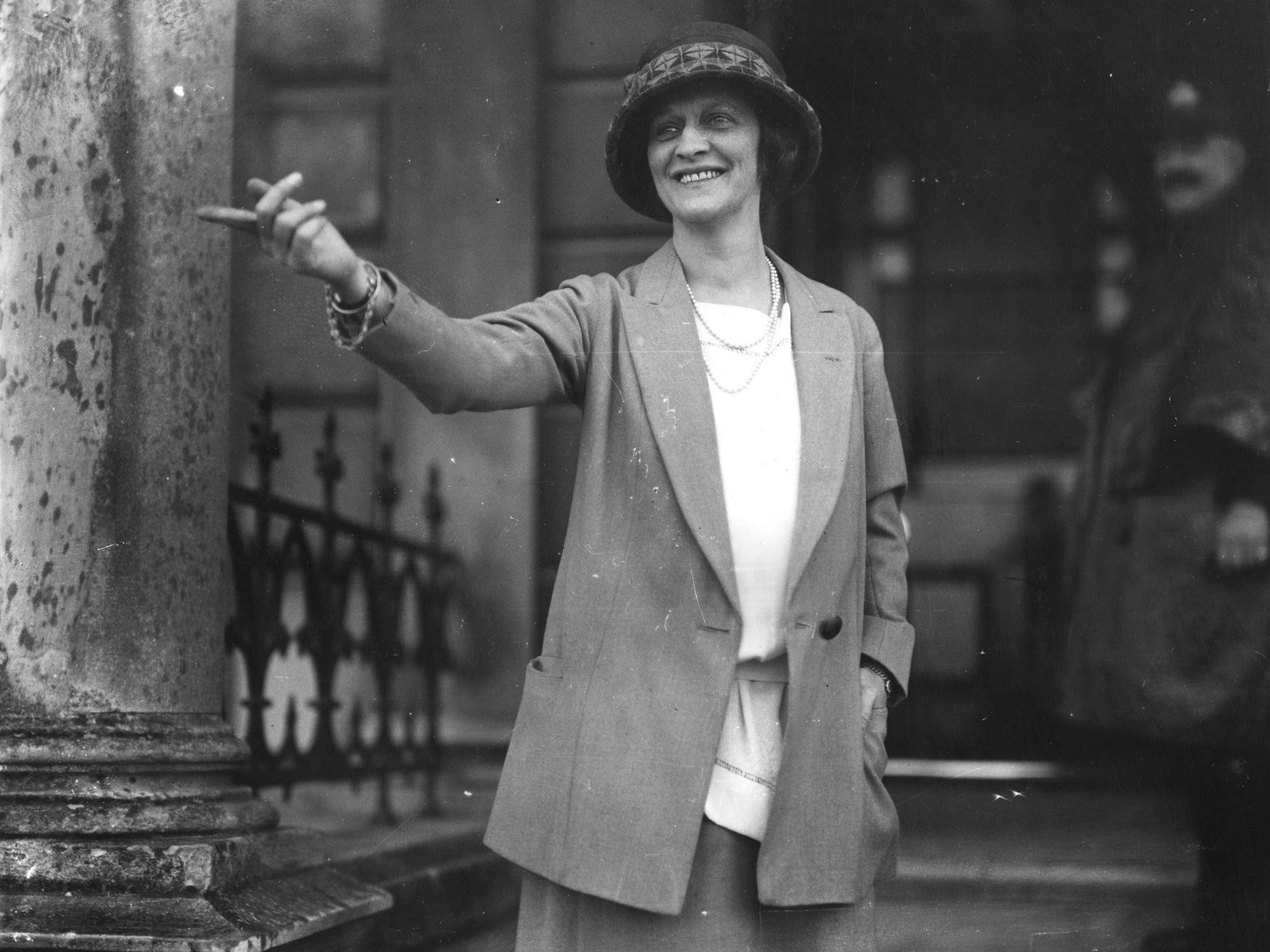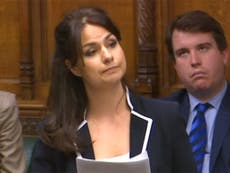From Mhairi Black to Heidi Allen: The maiden speeches that brought the House of Commons to its feet
Heidi Allen was not the first MP to make waves on her debut, as Andy McSmith reports

Heidi Allen, the 40-year-old business woman turned Tory MP, took her time before making her first speech in the chamber of the House of Commons. She was the last of this year’s new intake to deliver what is known in parliamentary slang as a “maiden” speech – but it was not the timing but the content that made waves.
Ignoring a convention that says maiden speeches should be uncontroversial, she marched towards the sound of gunfire, with a resounding warning to her fellow Conservatives that the Government’s decision to cut tax credits, impoverishing the low paid, was “betraying who we are”.
Though it is rare for a maiden speech to make waves as hers did, there have been others. These are five examples of maiden speeches that set the Commons alight:
Mhairi Black, the 20-year-old who delivered one of the Labour Party’s worst shocks in May’s general election by unseating the shadow Foreign Secretary, Douglas Alexander, then created a sensation on 14 July by the self-confidence with which she delivered her maiden speech, with its attack on welfare budget cuts.
She remarked caustically that while housing benefit for the under-21s had been abolished, MPs with seats outside London still had their second homes subsidised, making her “the only 20-year-old in the whole of the UK who the Chancellor is prepared to help with housing”.
Describing instances of appalling poverty that she had witnessed in Paisley, she asked: “The Chancellor spoke about fixing the roof while the sun is shining, but who is the sun shining on?”
MPs are not supposed to clap in the Commons. In her case, the official record notes there was “applause”.
Until Black, the youngest woman elected to Parliament was Bernadette Devlin, a Catholic who won a by-election in Mid Ulster in 1969, and delivered her maiden speech five days later, on 22 April, the day before her 22nd birthday.
In it, she attacked the “bigoted and sectarian Unionist Party, which uses a deliberate policy of dividing the people in order to keep the ruling minority in power” and alleged that: “There is no place in society for us, the ordinary ‘peasants’ of Northern Ireland.”

No one else spoke so eloquently for Northern Ireland’s Catholic minority in a year of brutal violence in the province – but even a maiden speech as powerful as Devlin’s does not necessarily herald a brilliant political career. She scandalised Northern Ireland in 1971 by having a child when she was not married, and lost her seat in 1974. She was never a major political player again.
The first time the House of Commons heard a woman’s voice was when Nancy Astor delivered her maiden speech on 24 February 1920, 15 months after the Eligibility of Women Act had allowed women to stand for Parliament for the first time.
Her topic was how drunkenness impacted on women. Viscountess Astor was American, and the US had just introduced Prohibition. “I do not think the country is really ripe for prohibition, but I am certain it is ripe for drastic drink reforms,” she said.
There were shouts of “No!” from the men around her, to which she retorted: “I know what I am talking about, and you must remember that women have got a vote now and we mean to use it.”

Winston Churchill later complained: “I felt as if a woman had entered my bathroom and I had nothing to protect myself with except a sponge.”
On 17 February 1919, the Commons was electrified by a maiden speech from the youngest of the new MPs elected after the war.
Only 22 years old, he began by apologising for the “atrocious crime of being a young man”, and went on to deliver a forensic argument against burdening the emerging aerospace industry with excessive health and safety regulations, arguing that heavy penalties for those responsible for causing accidents would have more effect. He ridiculed the Secretary of State for War, a man twice his age, for his “paucity of that invaluable asset called imagination” and warned that the Government was underestimating how rapidly air travel would expand. He was right. He sounded like the voice of tomorrow, making the minister look like a man stuck in the past.
That minister was Winston Churchill. His young challenger was the future leader of the British Fascist movement, Oswald Mosley.
Benjamin Disraeli was another ambitious young MP who broke the rule that a maiden speech should be uncontroversial – with disastrous results.
It was 7 December 1837. He chose to attack the previous speaker, Daniel O’Connell, a renowned Irish patriot who had been prevented from taking his seat for several yearsecause he was a Catholic.
Disraeli’s flowing black hair and the ostentatious way he dressed struck other MPs as odd. His speech was progressively drowned out by jeers from O’Connell’s supporters, followed by derisive laughter at his high-flown language. The noise was such that he offered to give up, but Sir Robert Peel urged him to carry on.
Disraeli ended by implicitly admitting he had lost the day, but said, “the time would come” when they would hear him. He was right.
Subscribe to Independent Premium to bookmark this article
Want to bookmark your favourite articles and stories to read or reference later? Start your Independent Premium subscription today.


Join our commenting forum
Join thought-provoking conversations, follow other Independent readers and see their replies
Comments